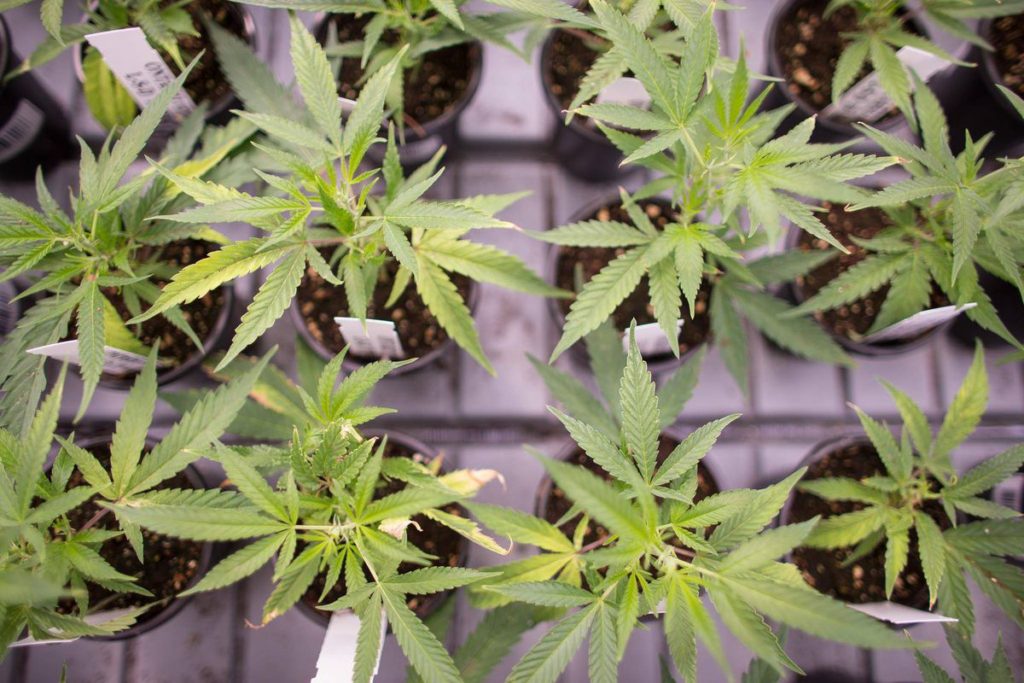Bank of Montreal and Toronto-Dominion Bank are emerging as the banks of choice for Canada’s burgeoning marijuana industry, even as some lenders shun the sector.
With less than a year to go before Canada plans to legalize recreational cannabis, and 16 years after making it legal for medical use, Bank of Montreal and TD are providing business accounts to at least 21 cannabis companies, according to interviews with 45 firms tied to the drug. Alterna Savings and Credit Union Ltd. is top among co-operative lenders.
Canadian banks are warming to an industry avoided by banks in the United States, where marijuana is outlawed federally. Most U.S. banks have refused to do business with cannabis companies to avoid accusations of money laundering and other criminal violations that could bring jail time.
Canada’s recreational pot sales are forecast to reach $6-billion by 2021, surpassing the $1.3-billion estimate for the mature medical marijuana market. Ontario’s government is already forging ahead with plans to set up its own marijuana stores, though using the drug for pleasure still carries a social stigma in many circles.
“Different lenders have been quicker than others to move into this industry, but this is understandable as public perceptions are still evolving,” Basem Hanna, chief executive officer of Mississauga-based TerrAscend Corp. said by e-mail. “There could be a significant first-mover advantage to the financial institutions that are getting involved with the legal cannabis industry already.”
Bank of Montreal provides accounts to at least a dozen companies, including Aphria Inc., CannTrust Holdings Inc. and Invictus MD Strategies Corp., as well as investment firms Cannabis Wheaton Income Corp. and CannaRoyalty Corp.
“We provide deposit accounts and related services to businesses operating legally within this emerging sector on a case-by-case basis,” spokesman Paul Gammal said in an e-mail. “We will continue to monitor the industry and consider offering further services as it matures.”
Toronto-Dominion, Canada’s largest lender, is banker to at least nine producers including MedReleaf Corp., Cronos Group Inc., TerrAscend and Beleave Inc. The lender assesses banking and loan applications from businesses in any legalized industry on “a case-by-case basis,” bank spokeswoman Elizabeth Lewis said.
Bin Huang, CEO of Victoria-based Emerald Health Therapeutics Inc., said the company won over Bank of Montreal by explaining the industry and directing its local bankers to the federal government’s Health Canada agency to prove Emerald is legal. Ms. Huang says she hasn’t had any issues with the Toronto-based lender or other banks, but said that’s not the case for many others in the industry.
“There has been a reluctance from the big banks because they are really risk averse and there’s also some confusion and misunderstanding,” she said. “We’re legal, we’re licensed but they still think when you’re in the cannabis business that that’s just a grey area – that’s the misperception and it takes time to educate.”
Royal Bank of Canada and Bank of Nova Scotia are among those that shut out cannabis companies, and both have shuttered accounts of those in the industry. Changing rules may prompt them to reconsider.
“RBC currently does not provide banking services to companies engaged in the production and distribution of marijuana,” spokesman AJ Goodman said. “We recognize that the legislative landscape is evolving and we are undergoing a review of our policies.”Scotiabank spokesman Rick Roth said that “should there be significant change to industry legislation or regulation, we will revisit our risk assessment and make risk-policy adjustments if warranted.”
While many banks have shied away, credit unions have stepped up. Alterna has embraced firms dropped by banks.
“This is a legal, legitimate business and therefore it should be able to be provided the appropriate banking services,” Alterna CEO Rob Paterson said in a phone interview. Ottawa-based Alterna provides banking to about half of licensed producers, according to Mr. Paterson. “The licensed producers are very sophisticated and structured, so they’re easy to actually do business with,” he said.
Clients include Canopy Growth Corp. and Aurora Cannabis Inc., Canada’s two largest producers by market value, and Green Organic Dutchman Holdings Ltd., which secured a $5-million credit line in September. Canopy turned to Alterna after Royal Bank withdrew services from what was Canada’s first publicly traded cannabis stock.
Cannabis companies may miss out on the benefits of dealing with big banks, including better access to debt financing, more favourable terms and their investment-banking expertise. Still, MedReleaf landed a $20-million credit agreement with “a major Canadian bank” in April, the Markham, Ont.-based company said in a filing. CEO Neil Closner wouldn’t disclose the bank’s name, but says the commitment could signal changing sentiment.
“It has sort of broken the ice and another one might follow, provided that it’s a business that makes sense,” Mr. Closner said in an interview.
Part of the banks’ reluctance may simply be the industry’s size and profitability. Three-quarters of the 73 publicly traded companies have a market value below $100-million and only a handful are profitable, according to data compiled by Bloomberg.
“As a few of the larger ones begin to make more money – or make money at all – I think some of the banks will line up and get more interested,” Mr. Closner said.
credit:420intel.com












